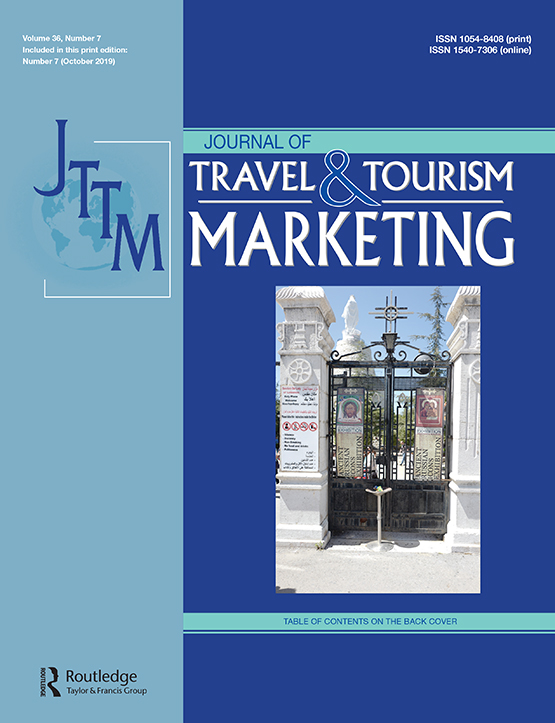What makes a destination smart? an intelligence-oriented approach to conceptualizing destination smartness
IF 9
2区 管理学
Q1 HOSPITALITY, LEISURE, SPORT & TOURISM
引用次数: 2
Abstract
ABSTRACT Drawing on teleology, this study aims to conceptualize destination smartness from a tourist perspective by identifying what intelligences a “smart” destination has executed. Thematic analysis of 25 interviews with experienced “smart tourists” unveiled a hierarchical framework of destination smartness, visualizing the components of destination smartness as seen by tourists. Eight identified intelligences were then situated within a 2 (crystalized development path–fluid development path) × 2 (task-oriented focus–interaction-oriented focus) × 2 (active service provision–passive service provision) plane. This study also lays a theoretical foundation for future studies and provides practical implications for the development of smart tourism.是什么让目的地变得聪明?一种基于智能的目的地智能概念化方法
摘要基于目的论,本研究旨在从游客的角度,通过识别“智能”目的地执行了哪些智能,来概念化目的地的智能。对经验丰富的“聪明游客”进行的25次采访的主题分析揭示了目的地智慧的层次框架,可视化了游客所看到的目的地智慧组成部分。然后,八种已识别的智能位于2(结晶发展路径-流动发展路径)×2(任务导向的焦点-互动导向的焦点)×2的(主动服务提供-被动服务提供)平面内。本研究也为未来的研究奠定了理论基础,并为智慧旅游的发展提供了现实启示。
本文章由计算机程序翻译,如有差异,请以英文原文为准。
求助全文
约1分钟内获得全文
求助全文
来源期刊

Journal of Travel & Tourism Marketing
HOSPITALITY, LEISURE, SPORT & TOURISM-
CiteScore
13.50
自引率
8.30%
发文量
25
期刊介绍:
The Journal of Travel & Tourism Marketing (JTTM) is a valuable platform for researchers and managers in the travel and tourism industry. It facilitates the exchange of ideas and provides updates on the latest developments in tourism. JTTM accepts submissions on various topics including marketing management practices, applied research studies, critical reviews, advancements in tourism marketing technologies, and the impact of business and government policies on travel and tourism marketing.
 求助内容:
求助内容: 应助结果提醒方式:
应助结果提醒方式:


